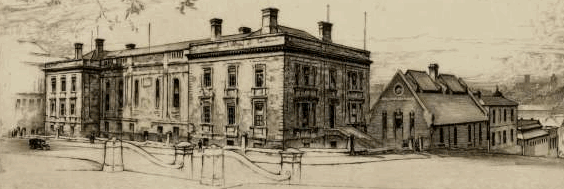|
News & Views item - September 2012 |
![]() Will Upping the Australian Tertiary Admission Rank Per Se Increase the
Numbers of the Better Teacher Applicants? (September 5, 2012)
Will Upping the Australian Tertiary Admission Rank Per Se Increase the
Numbers of the Better Teacher Applicants? (September 5, 2012)
Perhaps something was lost in communication, something went wrong in the digital correction coding, but in the discussions following Prime Minister Julia Gillard's address to the National Press Club this past Monday there has been much discussion on winnowing out applications from low scoring Australian Tertiary Admission Rank (ATAR) individuals and damn all discussion about attracting high scoring ones. Or in plain language how do you get smart, knowledgeable, dedicated people to take up primary and secondary school teaching.

The Minister for Tertiary Education, Chris Evans is quoted as saying: "I wouldn't condemn people with low ATARs as not being very bright." And The Australian's Julie Hare comments: "He also justified falling entry standards by pointing to the massive increase in vacancies for school teachers that will be brought on by the retirement of the baby boomers and growth in the school-aged demographic... [saying] between 2016 and 2020, 46,000 additional teachers would be needed.
On the other hand Tony Vinson* told Ms Hare that the minimum standards was an issue a decade ago and was just as, if not more, critical today: "I absolutely think it is right to set minimum standards. I was worried when I did my review about the lower end of the range of admission scores. Students told me they need to have high achievers in front of the classroom. They are very sensitive to the sharpness and learning of teachers themselves. They need skilled practitioners who are respected for their own academic ability."
Simon Marginson, professor of higher education at the University of Melbourne made the point: "The lower echelons of the demand-driven system in terms of scores belong to general education programs such as the humanities and social science, business studies and so on," and told Ms Hare that in his opinion ATARs would become less important if teacher education was pushed as a second degree, such as a graduate diploma or masters but added: "The question is, will a higher threshold for entry lead to a teacher shortage? There is a potential for higher entry standards to affect institutions that accept first degree education students and lack a high-value institutional brand and are highly dependent on teacher education."
There is a marked reluctance by both Labor and the Coalition to develop a long range approach to substantially increase the incentives for high flyers to take up teaching, particularly in those subjects considered "difficult" and as long as that remains the case, public schooling will be precluded from significant improvement.
_____________________________________________________
*Professor Vinson chaired The New South Wales Public Education Inquiry, 2003.